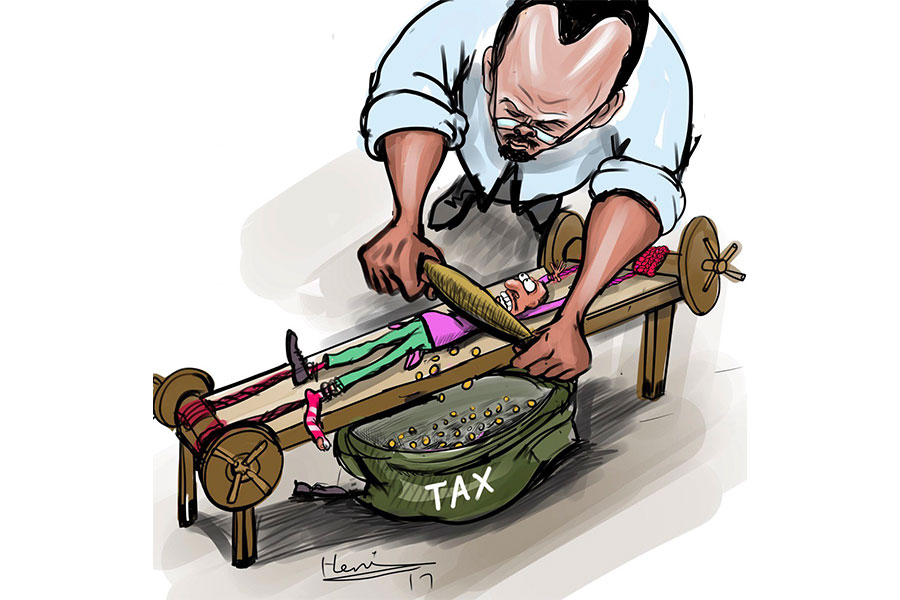Federal officials are accelerating the shift towards domestically assembled electric vehicles (EVs), with a landmark directive prioritising them in public procurement. The initiative, backed by the ministries of Transport & Logistics and Industry, mandates a 15pc price preference for domestic assemblers with over 35pc value addition, hoping to boost domestic production despite persistent competition from more affordable imports.
With 639 EVs procured or contracted for, and a bold ambition to deploy half a million EVs by 2030, federal officials believe groundwork for a sustainable transport future is being laid.
Werku Gezahegn, head of procurement department at the Procurement & Property Service confirmed the federal government's procurement. He disclosed that smaller vehicles and buses are available domestically, but heavy-duty electric vehicles remain scarce.
Nevertheless, imports still dominate public EV procurement due to lower costs.
The Ministry of Transport & Logistics, partnering with the Ministry of Industry, introduced the strategy. Alemu Sime (PhD), minister of Transport, affirmed his Administration's commitment, asserting that Ethiopia solely procures electric vehicles, except in areas where infrastructure remains inadequate.
The authorities have banned fuel-powered vehicle imports, aspiring to meet global climate objectives, despite international concerns voiced by organisations such as the World Trade Organization (WTO) and fuel-exporting countries. Ethiopia spent nearly six billion dollars on fuel imports in 2023, draining its foreign reserves.
A federal steering committee has been formed to oversee the implementation of the electric vehicle strategy, supported by a technical team responsible for proposals and execution. Alemu's Ministry is tasked with tracking progress.
"The lack of sector-specific expertise has been a major obstacle," said Alemu.
The strategy seeks to conform with the Administration’s ambitious 10-year growth plan, which targets deploying half a million electric vehicles by 2030, including 148,000 electric cars and 48,555 buses. It aspires to install 2,226 charging stations nationwide, 1,176 in Addis Abeba. Charging points are planned in every 50Km in urban areas and 120Km along highways to accommodate long-haul and heavy-duty vehicles.
Around 70 to 80 charging stations are already operational in key urban areas, with additional installations planned at hospitals, government offices, bus stations, and hotels.
The strategy also allows for the establishment of a centre of excellence (CoE) for electric vehicle training, integrating EV expertise into the technical and vocational training curriculum. The authorities see the centre becoming crucial in building a skilled workforce essential for the growing EV market. The strategy identified inadequate incentives, weak regulatory frameworks, and limited vehicle financing options as critical barriers. Inadequate infrastructure, including insufficient charging stations, maintenance centres, and trained technicians, are slowing the industry’s growth. High vehicle prices and shipping costs further discourage EV adoption.
The strategy seeks to establish Ethiopia as a competitive manufacturing hub, facilitating technology transfer, skill development, and innovation. Key policy interventions include streamlining the transport of assembled vehicles through a dedicated direct port delivery system, introducing asset-based financing schemes for domestically assembled EVs.
According to Besufekad Shewaye, CEO of Belayneh Kinde Metal Engineering, domestic assemblers meet technical and quality standards but fiercely compete against lower-cost imports. They bear steep operational costs and limited tax benefits.
"The tariff advantage is only five percent," said Besufekad.
Ethiopia’s current production capacity includes 63,900 two-wheelers and three-wheelers, 14,900 automobiles, 1,200 light trucks, and 3,500 minibuses and buses. However, the annual EV manufacturing capacity of 84,000 units remains underutilised at around 10pc.
Besufekad disclosed his company’s desire to set up charging stations and urged government support for grid connections and land allocation. However, financing remains a major constraint, with local banks remaining sceptical about advancing loans for electric vehicles. A notable intervention included in the strategy is providing project financing for EV assemblers and infrastructure developers, alongside affordable loans for consumers and assemblers. It proposed a transparent foreign currency allocation process through commercial banks involved in EV development.
Belayneh Kinde Metal Engineering, one of the domestic assemblers, is to import battery cells for local assembly and has already trained 36 specialists, initially sending technicians to China.
"We've an agreement with Addis Abeba University to develop a new curriculum for EVs," he told Fortune.
Data from the Ministry of Industry revealed that 21,800 vehicles are assembled annually, including 2,061 EVs in the last fiscal year. Nevertheless, imports remain dominant, with approximately 25,000 EVs brought in the first half of the current fiscal year alone.
Research shows that 80pc of vehicles exported to developing countries, including half those sent to Africa, are found to fail basic safety and environmental standards.
Senior climate change expert Yizengaw Yitayih noted that despite assemblers' concerns, putting these vehicles together locally provides price advantages. The initial five percent import tariff was specifically designed to encourage domestic production. He urged systematic charging infrastructure mapping, particularly in Addis Abeba, to optimise their effectiveness.
According to State Minister for Transport Bareo Hassen, there will be a partnership with other interested entities such as Ethiopian Electric Power (EEP) for effective infrastructure mapping.
Other federal officials call for clarity in regulations, primarily for residential charging stations. Destaw Mekuanent, deputy director at the Ethiopian Petroleum Authority, observed that some state enterprises have already established stations without proper licensing. A regulation to license charging stations was ratified recently.
Minister Alemu has urged swift action and disclosed plans to regulate EV charging tariffs, ensuring affordability for low-income users.
The strategy proposed offering subsidies and tax credits, particularly for low-income households, to bridge the price gap between electric and gasoline-powered vehicles. Low-interest loans are thought to facilitate broader EV ownership.
The strategy also targets foreign direct investment (FDI) and developing integrated value chains to diversify EV production capabilities. Federal Investment Commissioner Zeleke Temesgen (PhD) disclosed that foreign investors have shown keen interest in establishing charging stations but face regulatory hurdles. He would like to see performance-based incentives similar to those provided in special economic zones (SEZs) to attract more manufacturers.
Ethiopia is home to around 100,000 electric vehicles out of a total vehicle count of approximately 1.5 million.
Yizengaw foresees diesel-powered vehicles being required to meet stricter emission standards soon under the broader climate policy. The authorities expect substantial savings from transitioning to electric cars. In the fiscal year 2021/22 alone, the federal government allocated over 608.5 million dollars in fuel subsidies.
E-mobility expert Bereket Tesfaye praised the practicality of the government’s interventions but criticised insufficient engagement with the private sector. He sees a crucial gap in the absence of a legal framework governing EV battery manufacturing, voicing his concern over rising electricity demand and calling for a detailed assessment by Ethiopian Electric Power.
"The number of grids required should be quantified," he urged.
The experts believe widespread scepticism, fueled mainly by misinformation and anxiety, remains a barrier to public acceptance. They warn that a lack of battery recycling and disposal solutions poses environmental concerns.
PUBLISHED ON
Mar 30, 2025 [ VOL
25 , NO
1300]

Dec 22 , 2024 . By TIZITA SHEWAFERAW
Charged with transforming colossal state-owned enterprises into modern and competitiv...

Aug 18 , 2024 . By AKSAH ITALO
Although predictable Yonas Zerihun's job in the ride-hailing service is not immune to...

Jul 28 , 2024 . By TIZITA SHEWAFERAW
Unhabitual, perhaps too many, Samuel Gebreyohannes, 38, used to occasionally enjoy a couple of beers at breakfast. However, he recently swit...

Jul 13 , 2024 . By AKSAH ITALO
Investors who rely on tractors, trucks, and field vehicles for commuting, transporting commodities, and f...

Aug 2 , 2025
At daybreak on Thursday last week, July 31, 2025, hundreds of thousands of Ethiop...

Jul 26 , 2025
Teaching hospitals everywhere juggle three jobs at once: teaching, curing, and discov...

Jul 19 , 2025
Parliament is no stranger to frantic bursts of productivity. Even so, the vote last w...

Jul 12 , 2025
Political leaders and their policy advisors often promise great leaps forward, yet th...